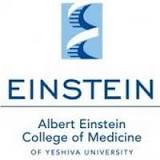Continuous Activity Monitoring During Fractionated Radiotherapy in Patients With Head and Neck, Lung, or Gastrointestinal Cancer
| Status: | Completed |
|---|---|
| Conditions: | Lung Cancer |
| Therapuetic Areas: | Oncology |
| Healthy: | No |
| Age Range: | 18 - Any |
| Updated: | 5/27/2018 |
| Start Date: | June 2015 |
| End Date: | July 2017 |
Continuous Activity Monitoring During Fractionated Radiotherapy: A Pilot Study
This pilot research trial studies continuous activity monitoring during fractionated
radiotherapy in patients with head and neck, lung, or gastrointestinal cancer. This study
explores the use of fitness trackers to study the activity levels of patients before, during,
and after radiation therapy and the use of weekly assessments to measure the patients'
quality of life during radiation therapy. This may allow doctors to see if there is any
relationship between activity levels, quality of life, treatment interruptions,
hospitalizations, and clinical outcomes.
radiotherapy in patients with head and neck, lung, or gastrointestinal cancer. This study
explores the use of fitness trackers to study the activity levels of patients before, during,
and after radiation therapy and the use of weekly assessments to measure the patients'
quality of life during radiation therapy. This may allow doctors to see if there is any
relationship between activity levels, quality of life, treatment interruptions,
hospitalizations, and clinical outcomes.
PRIMARY OBJECTIVES:
I. To demonstrate the feasibility of continuous, accelerometer-based evaluation of patient
activity levels before, during, and after treatment with fractionated external beam
radiotherapy.
SECONDARY OBJECTIVES:
I. To demonstrate the feasibility of performing weekly quality of life assessments during
fractionated external beam radiotherapy.
II. To explore how accelerometer-based metrics change throughout patients' treatment courses
and if these changes are associated with quality of life assessments, treatment
interruptions, hospitalizations, and clinical outcomes.
OUTLINE:
Patients wear an activity monitor throughout and up 4 weeks after completion of radiation
therapy. Patients who are willing may continue to wear the monitor through routine follow up
appointments. Patients also complete questionnaires at evaluations, which take place prior to
radiotherapy initiation, weekly during radiotherapy, and then 2 and 4 weeks after the
completion of radiotherapy.
I. To demonstrate the feasibility of continuous, accelerometer-based evaluation of patient
activity levels before, during, and after treatment with fractionated external beam
radiotherapy.
SECONDARY OBJECTIVES:
I. To demonstrate the feasibility of performing weekly quality of life assessments during
fractionated external beam radiotherapy.
II. To explore how accelerometer-based metrics change throughout patients' treatment courses
and if these changes are associated with quality of life assessments, treatment
interruptions, hospitalizations, and clinical outcomes.
OUTLINE:
Patients wear an activity monitor throughout and up 4 weeks after completion of radiation
therapy. Patients who are willing may continue to wear the monitor through routine follow up
appointments. Patients also complete questionnaires at evaluations, which take place prior to
radiotherapy initiation, weekly during radiotherapy, and then 2 and 4 weeks after the
completion of radiotherapy.
Inclusion Criteria:
- Eastern Cooperative Oncology Group (ECOG) performance status 0-2
- Able to ambulate independently (without the assistance of a cane or walker)
- Diagnosis of invasive malignancy of the head and neck region, lung, or
gastrointestinal tract
- Planned treatment with fractionated (>= 15 treatments) external beam radiotherapy with
concurrent chemotherapy with curative intent
- Women of childbearing potential must:
- Have a negative serum or urine pregnancy test within 72 hours prior to the start
of study therapy
- Agree to utilize an adequate method of contraception throughout treatment and for
at least 4 weeks after study therapy is completed
- Be advised of the importance of avoiding pregnancy during trial participation and
the potential risks of an unintentional pregnancy
- All patients must sign study specific informed consent prior to study entry
We found this trial at
2
sites
Albert Einstein College of Medicine The Albert Einstein College of Medicine of Yeshiva University is...
Click here to add this to my saved trials
Click here to add this to my saved trials
